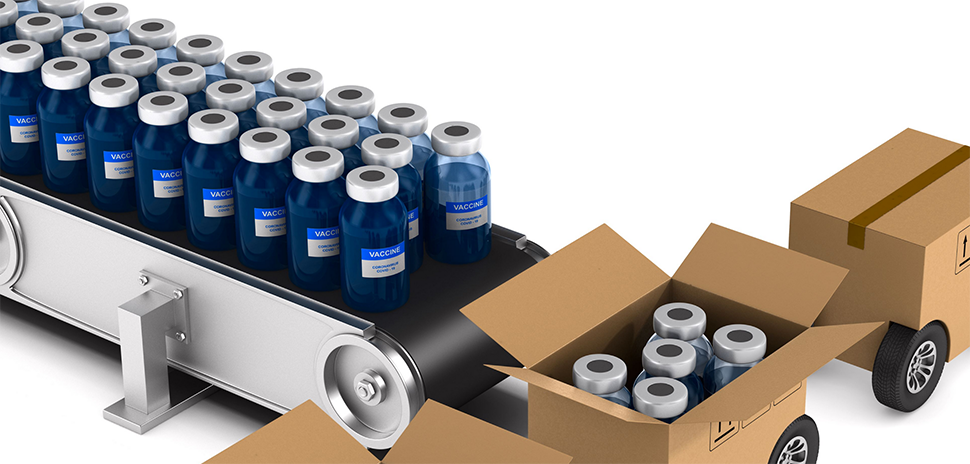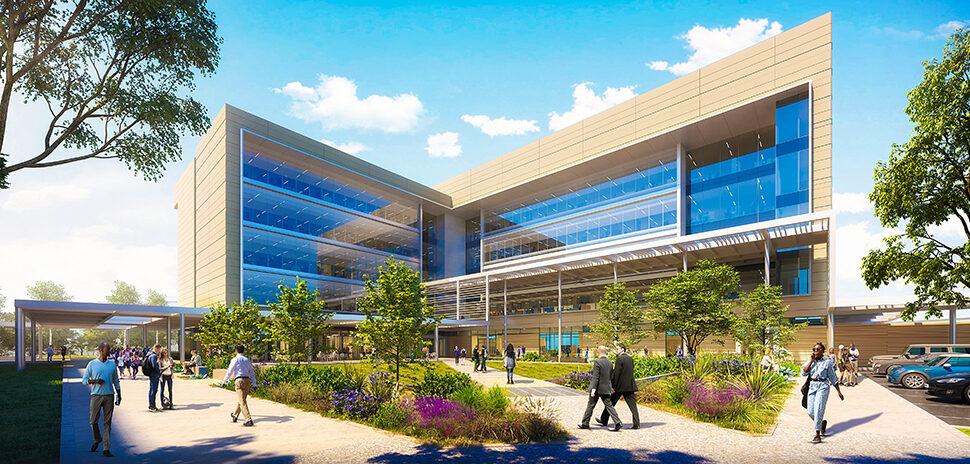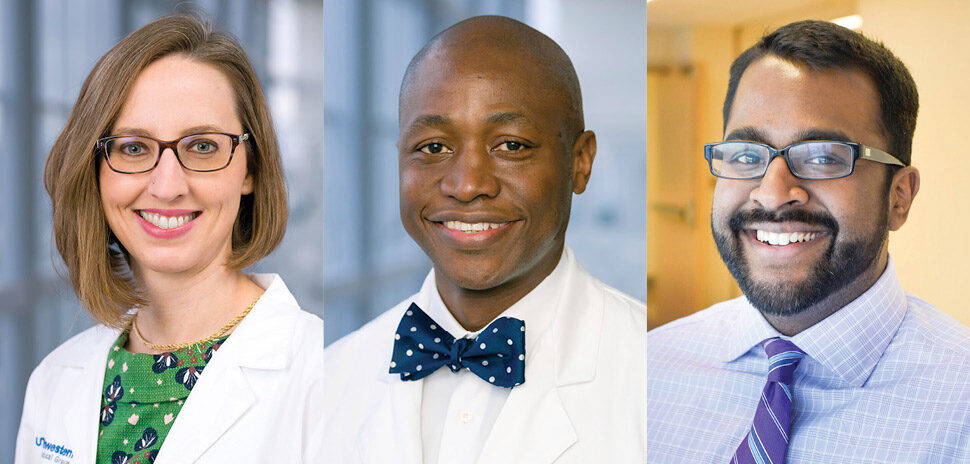While most of the world shifted to home-based work to avoid COVID-19, virus researchers at UT Southwestern Medical Center stayed on-site, amping up their lab and data work to fight and defeat the virus, says Claire Aldridge, Associate Vice President of Commercialization and Business Development at UTSW.
Aldridge helps move discoveries from the lab to the real world in her role at UTSW. The self-described “lifelong science geek,” collaborates with “some of the best minds in the business to advance discoveries” every day. That hasn’t slowed down in the pandemic.
“Even while our campus shut down, we kept the COVID research going,” Aldridge says. “So any scientists who were working on COVID, we provided a safe place for them to continue that [research].”
Aldridge, who holds a doctoral degree from Duke University in immunology and genetics, described key research and developments at UTSW Medical Center (UTSWMC) that can make a difference in the COVID battle in a meeting of the DRC’s Innovation Taskforce earlier this summer.
It’s a fight that became personal for the scientist in April. Aldridge herself battled COVID-19 and shares her story in an essay. The novel coronavirus turned Aldridge’s “world—the entire world—upside down,” she writes. “For nearly two weeks, I was alone in my bedroom with excruciating headaches, unrelenting body aches, and inescapable fear.”
In fact, she says, “there were moments when I wasn’t sure I’d make it.” But Aldridge says she’s “fully recovered.” As soon as she was able, the UTSW leader donated plasma and antibodies to help others in their fight. “There’s a reason they call it “liquid gold,” she says.
Now Aldridge feels “a renewed sense of urgency to get our science to a point where it can change lives and everyday patient care.” And UT Southwestern “has already filed several patents for potential therapeutics related to COVID-19,” she notes.
In the task force meeting earlier this summer, Aldridge shares 5 key works at UTSWMC, ranging from testing the efficacy of existing pharmaceutical treatments to identifying the prevalence of COVID in the region’s population.
Here’s the takeaway:
![]() UTSW researchers are testing the effectiveness of convalescent COVID patient plasma on reducing the virus’ impact.
UTSW researchers are testing the effectiveness of convalescent COVID patient plasma on reducing the virus’ impact.
“Convalescent plasma is plasma taken from a patient who has cleared the disease,” Aldridge said. “You’re trying to take their antibodies and give them to a new patient. We know they’re already doing it with severely ill patients in ICUs. But we’re taking it a step further, saying, if we give a patient with mild symptoms in the hospital convalescent plasma, who could recover at home? … Can we shorten the duration of the illness, or lessen the severity of the illness?”
![]() Roughly 1,000 members of Dallas’ fire and rescue first responders are being tested by UTSW for COVID and for its antibodies.
Roughly 1,000 members of Dallas’ fire and rescue first responders are being tested by UTSW for COVID and for its antibodies.
“Antibody production could tell us whether they were infected prior to being tested,” she said. “That data should be coming out in the next few weeks, and we’ll have an understanding of how many of our first responders were exposed.”
![]() With assistance from UTSW, another 45,000 individuals from Dallas and Tarrant counties will be tested for COVID to determine the prevalence of the virus in the region.
With assistance from UTSW, another 45,000 individuals from Dallas and Tarrant counties will be tested for COVID to determine the prevalence of the virus in the region.
“This will allow us to look across the area to see if we can identify hot spots,” Aldridge said. “We’ll see if we can get data to allow us to identify them sooner and maybe lessen their impact.”
![]() UT Southwestern has teamed up with Texas Health Resources and Parkland Hospital to analyze electronic medical records for indicators that might predict whether a patient will suffer more severely from COVID.
UT Southwestern has teamed up with Texas Health Resources and Parkland Hospital to analyze electronic medical records for indicators that might predict whether a patient will suffer more severely from COVID.
“We’re doing a lot of work with data mining and machine learning,” she said. “We’ve got a couple of projects along those lines.”
![]() UTSW is taking part in at least two national clinical trials relating to drugs to treat COVID.
UTSW is taking part in at least two national clinical trials relating to drugs to treat COVID.
“We’re also doing some of the national clinical trials with the drugs you hear about, such as remdesivir and the anti-IL-6” inhibitors, Aldridge said.
Quincy Preston contributed to this report.
Dallas Innovates is a collaboration of D Magazine Partners and the Dallas Regional Chamber. A version of this story first appeared on the Dallas Regional Chamber site.
![]()
Get on the list.
Dallas Innovates, every day.
Sign up to keep your eye on what’s new and next in Dallas-Fort Worth, every day.































